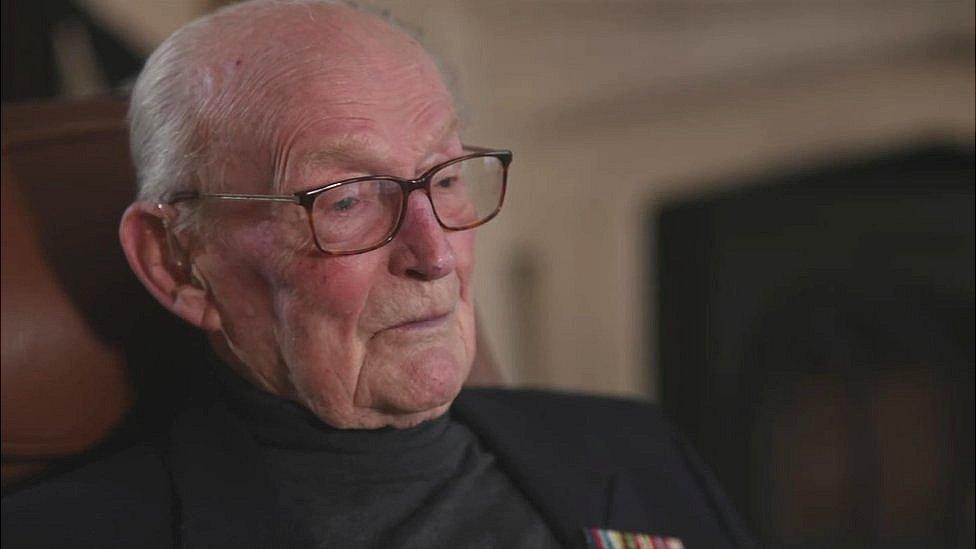'If we don't take on D-Day traditions, no one will'
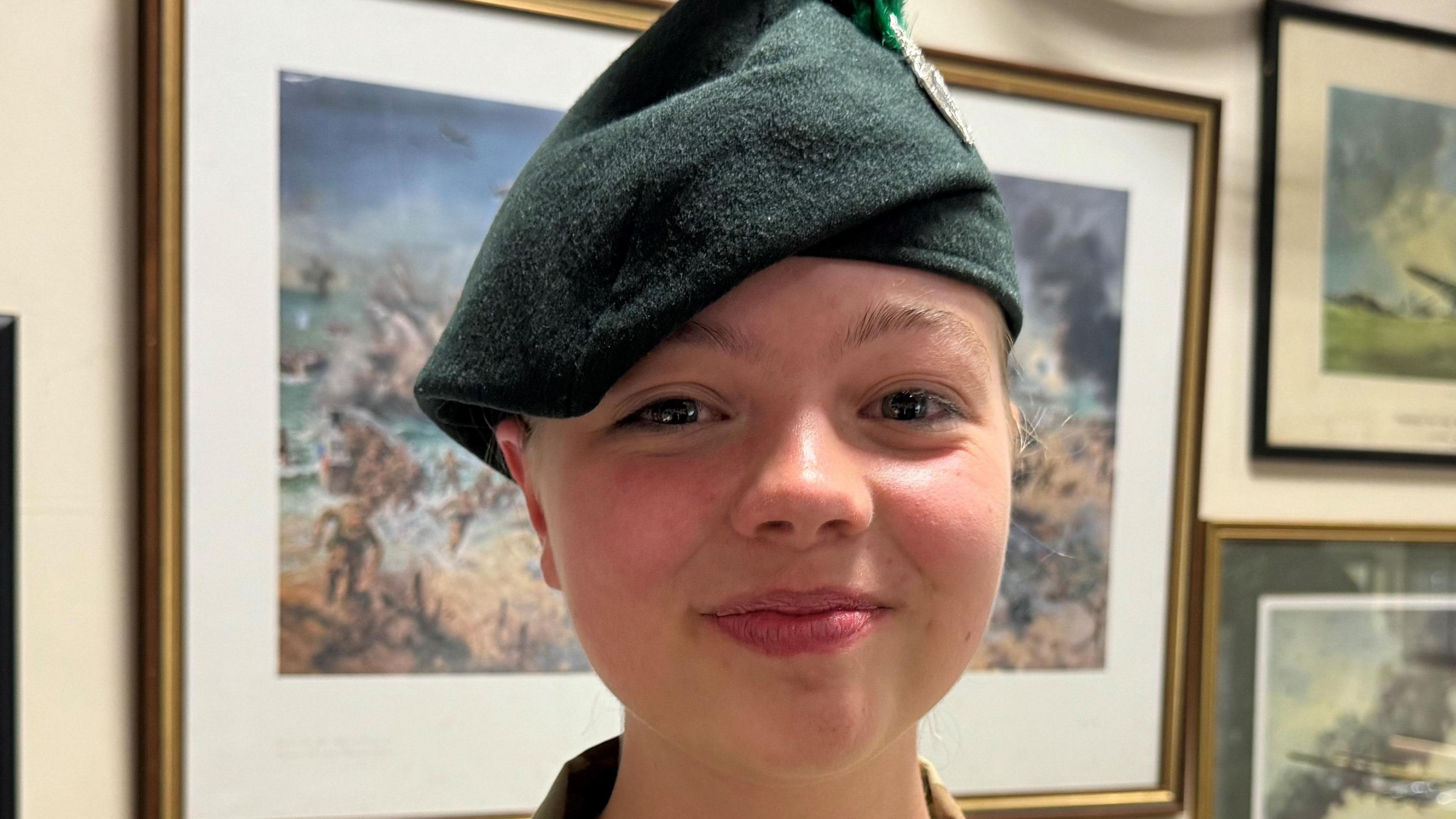
Sixteen-year-old Ella Williams is with a group of Army cadets paying tribute to the fallen in Normandy
- Published
Ella Williams is embarking on a journey of discovery in Normandy to mark the 80th anniversary of D-Day.
The Army cadet from County Down wants to find the graves of her great-grandfather’s two best friends, who were killed during World War Two.
Ella, who turned 16 last week, wants to pay her respects on her “papa’s” behalf.
She is just one of a number of young cadets from across Northern Ireland who are visiting France for a week of commemorations.
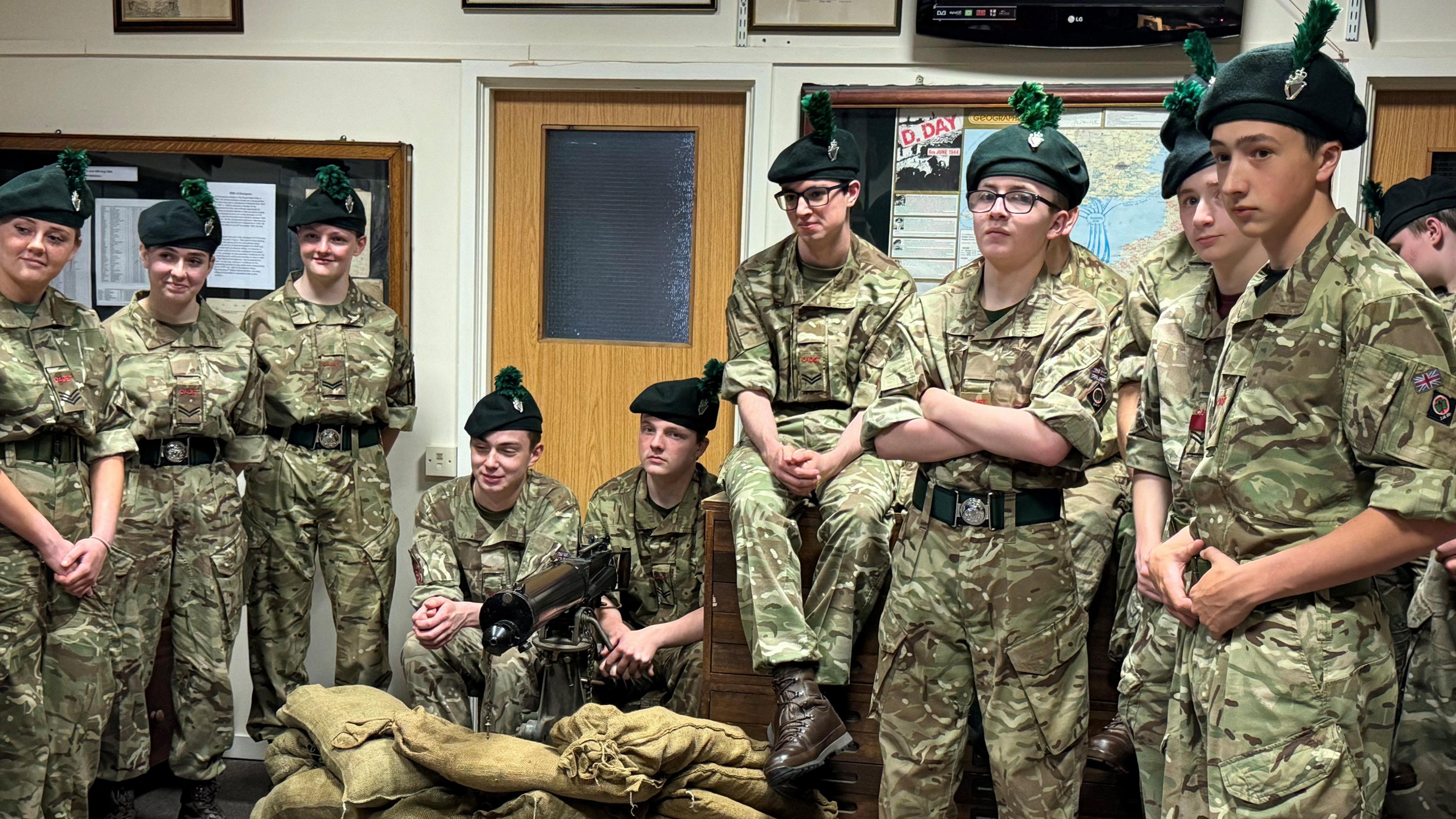
A number of young cadets from across Northern Ireland are visiting France for a week of D-Day commemorations
Normandy landings
“If we don’t keep it going, nobody will,” the teenager from Killyleagh told BBC News NI.
“The land’s not going to do it, but we need to do it.
“We just need to keep on carrying on the tradition of remembering these people who fought for our freedom.”
With even the youngest of surviving war veterans pushing 100, the cadets are taking on the mantle of remembering those who fell.
The events in Normandy mark the 80th anniversary of Operation Overlord, which saw tens of thousands of soldiers land on the beaches of Normandy to help bring about an end to the war.
Ella’s great-grandfather was Major Cunningham Fowler.
She said he used large anti-aircraft machinery to take down the enemy – and also wrote some poetry.
“It makes me feel really, really proud,” she said.
“The fact that he was a major and the fact that I’m related to that is just amazing.
“Even reading his poetry you can really see the emotion coming through, and how he was there. You can really, really see it.”
Graves in France
Ella, who serves in the Second (Northern Ireland) Battalion in Killyleagh, added: “My papa had two best friends killed over in France, and I think it’d be really nice to see if I could find their graves and where they were laid to rest.
“My mum always told me that the little French kids would look after their graves and I think it would be very nice to see and leave flowers.”
She said since becoming a cadet, she has grown to be a “better person” – something that fills her with pride given her military ancestry.
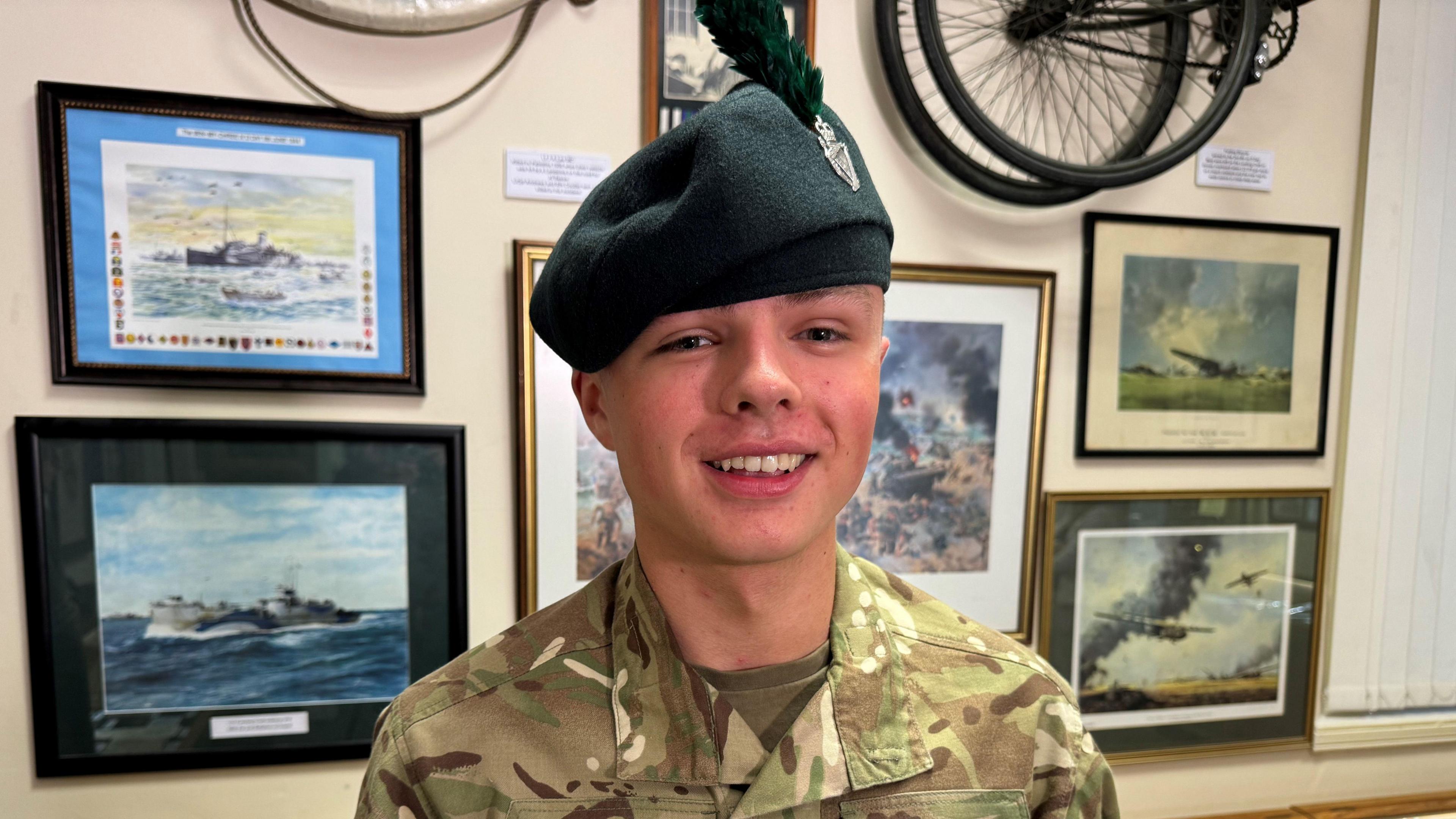
Josh Mussen, 17, is proud of his family's military history
Josh Mussen, 17, from First Battalion, Whitehouse detachment in Newtownabbey, is also travelling with the cadets to pay tribute to those who came before him.
He said his great, great-grandfather Richard Mussen from the Royal Ulster Rifles was killed in France at the end of World War One.
“I do have a big family connection,” Josh said.
“I can only just imagine what they went through, what conditions they had to live through, the fighting, what effect it had on them.
“So I am proud of having family that did their part.”
What was D-Day?
D-Day was the first day of the invasion of Normandy - the beginning of a huge campaign by the Allies of World War Two in north-west Europe, which was occupied by Nazi Germany.
Along with campaigns elsewhere - including the Eastern Front and the Italian campaign - it would eventually lead to Germany's defeat.
The "D" in "D-Day" simply means "day" - it is a military term used to mark the start of an operation. The hour of attack was known as H-Hour.
Allied troops - mainly from the United Kingdom, Canada and the United States but also other countries - landed on five beaches in Normandy on 6 June.
The Allies suffered about 10,000 casualties - including an estimated 4,000 deaths - but the operation was a success.
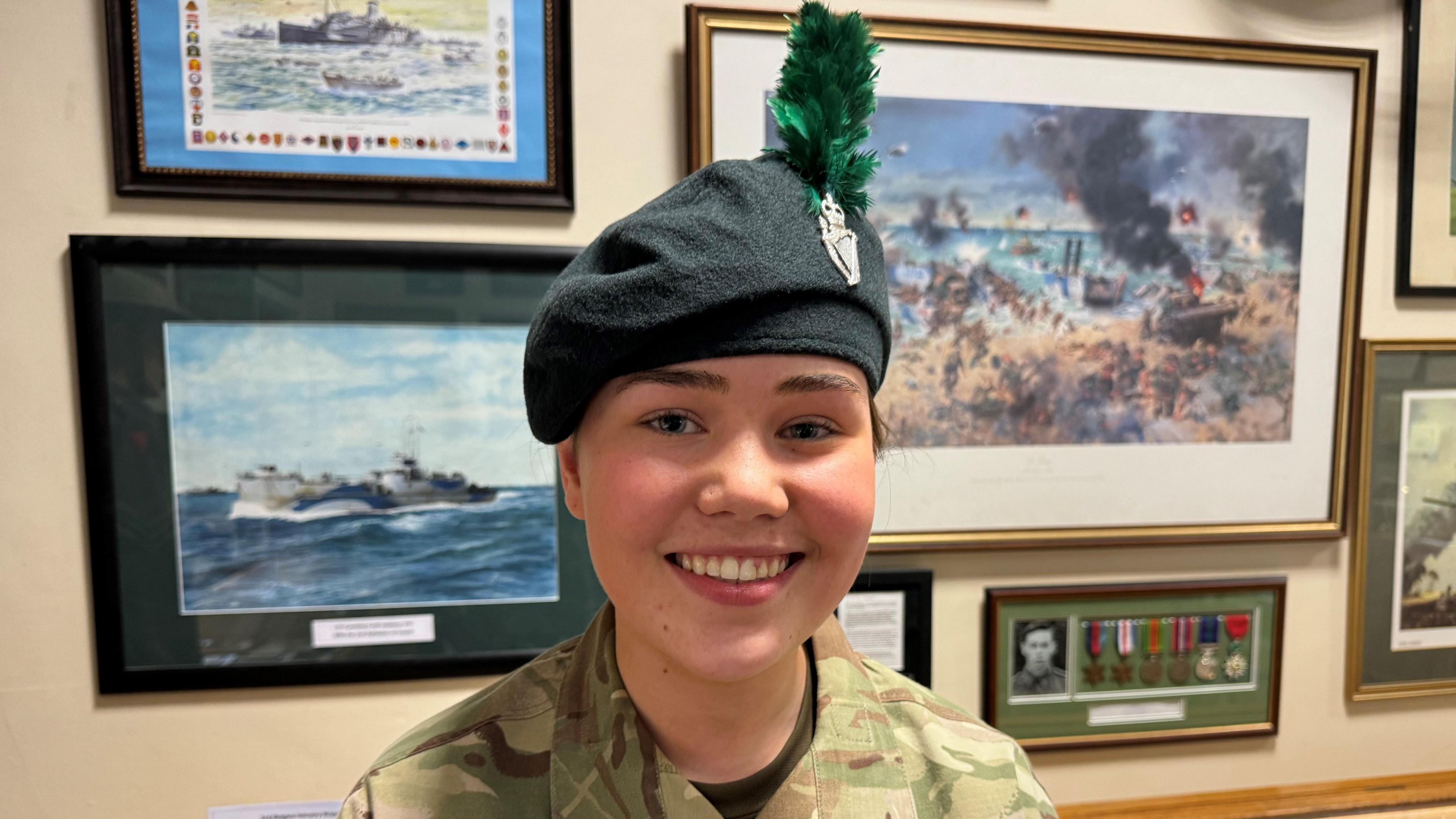
Evie Sloan, 17 says it must have been terrifying for D-Day soldiers not knowing what they were going into
His fellow cadet, 17-year-old Evie Sloan, also has the Army in her blood. Her father, uncles and grandfather all served in the military.
She said it was “unreal” to have the opportunity to go to France and pay her respects to the soldiers who died in battle.
“It must’ve been terrifying for them - not knowing what they were going into, not expecting what was going to happen to them,” she said.
“But they were very brave being able to sign up and being able to commit themselves to the battle that they had to face.”
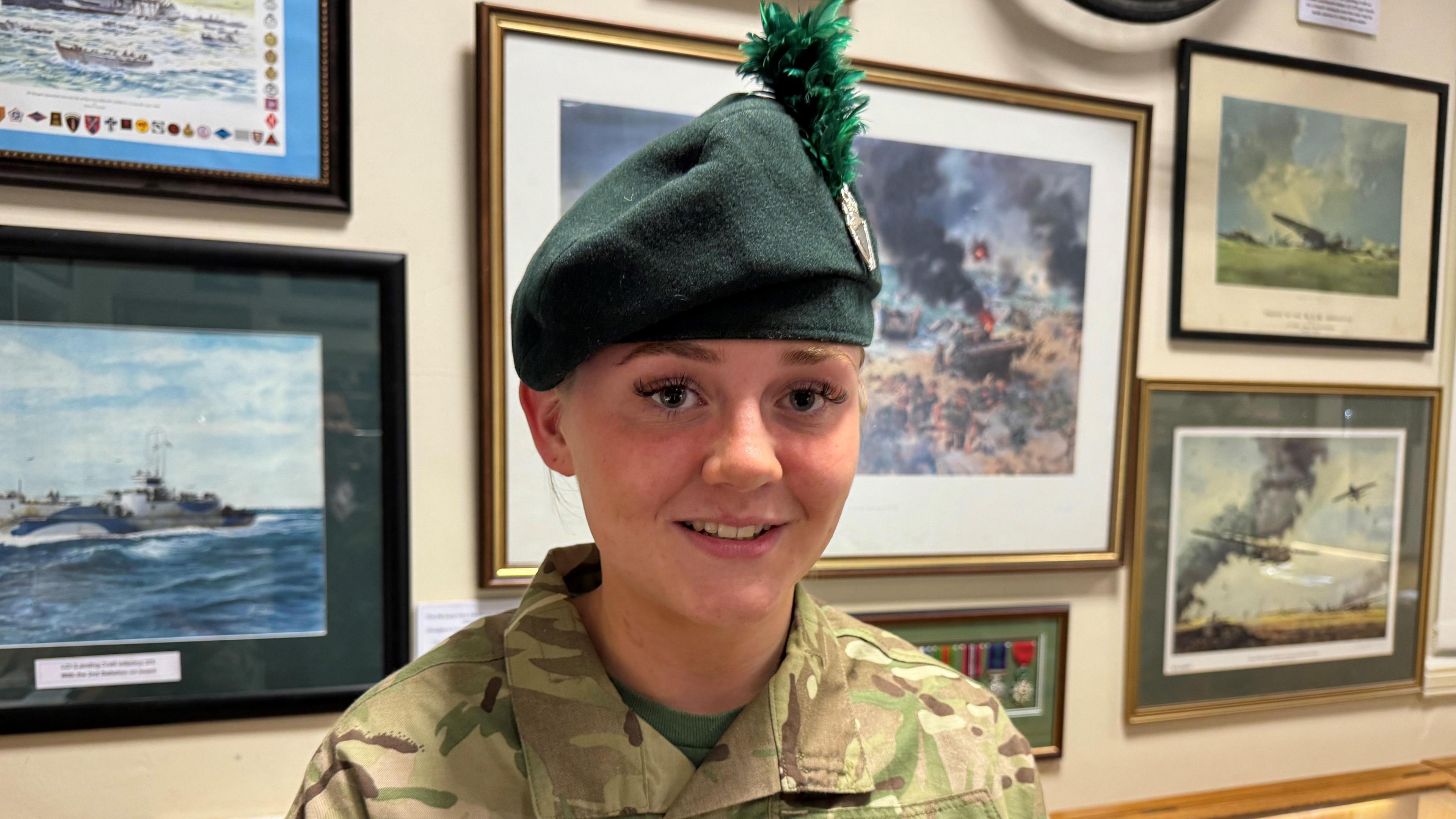
Rebecca Stewart, 16 says it is vital that young people honour D-Day traditions in order to pass on the mantle of remembrance
For 16-year-old Rebecca Stewart, from Second Battalion, Peninsula in Ballyhalbert – remembering the past was important for young people.
“There’s going to be a time when there isn’t going to be anyone,” she said.
“But at least now, there’s the likes of us going over here, we get to talk about it, and pass it along.”
Related topics
- Published6 June 2024
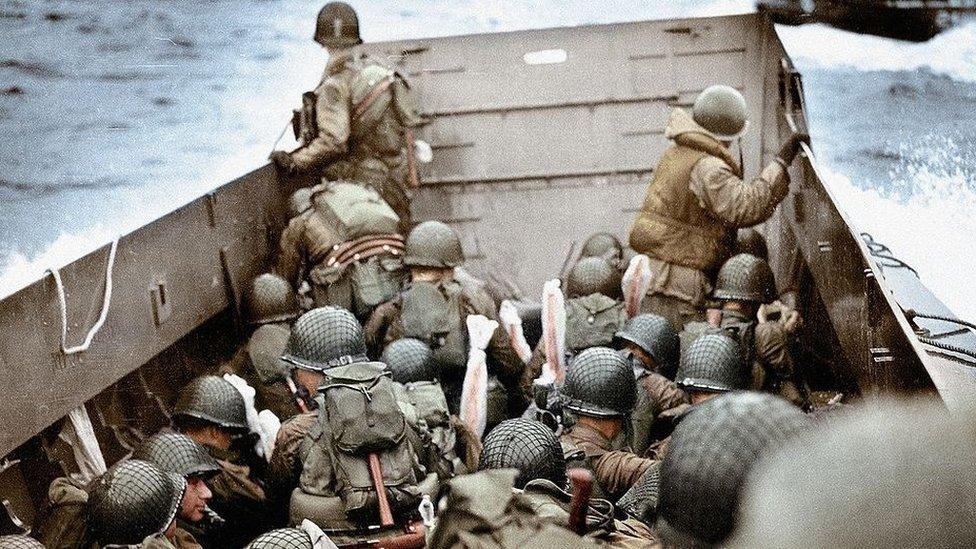
- Published6 June 2019
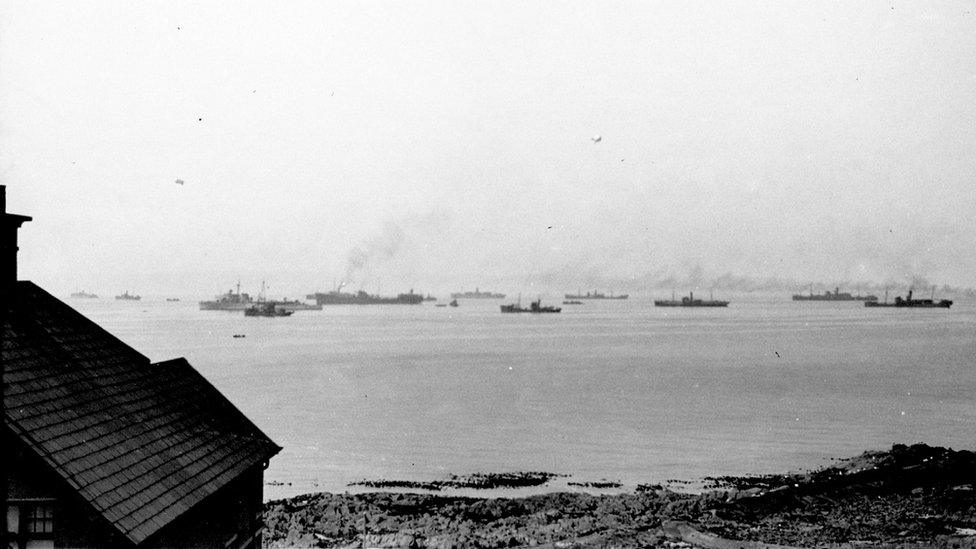
- Published10 March 2023
